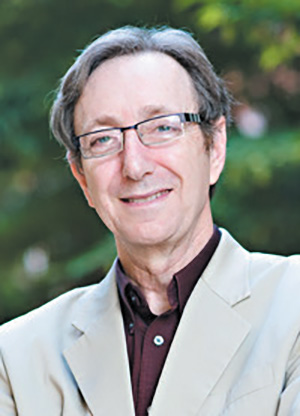


Over 200 Jewish educators from 85 day schools and yeshivas from the U.S., Mexico and Canada came to Fort Lee earlier this week to learn how to better prepare their students for what anti-Israel groups are trying to turn into the new normal on college campuses.
The conference, “From Anti-Zionism to Anti-Semitism: Preparing High School Students for the New Reality,” was sponsored by the Schusterman Center for Israel Studies at Brandeis University and the Avi Chai Foundation.
Educators listened to a full slate of speakers on both days. The presenters included current Jewish college students who related their campus experiences when it came to anti-Israel or anti-Semitism; an accounting of the campus environment for Jewish students by speakers of the sponsoring foundations; the challenge of preparing students emotionally for the campus transition, a presentation from Joe Hyams, the CEO of HonestReporting.com; a talk given by Daniel Gordis, the Koret Distinguished Fellow at Shalem College; legal approaches to addressing anti-Semitism on campus; an interview with Bret Stephens, the deputy editorial page editor of the Wall Street Journal, and a panel discussion among educators on the role of Israel education in day schools.
Rabbi Eli Ciner, the head of school at Yeshivat Frisch, was among six of the presenting educators discussing the role of Israel education in day schools.
He told The Jewish Link that Frisch takes one period a week in its upper grades and dedicates that time slot for Israel Advocacy. “It could be how you speak to your friend about Israel in a dorm room conversation or how to discuss the refugee crisis,” he said.
During the panel presentation, he said, “We realized one area where we were not locked in with our mission statement.” While Medinat Yisrael is central to the school’s educational mission, Rabbi Ciner said that “we were asking our students to advocate for Israel (once they graduated), but they didn’t know basic facts.”
That changed quickly with the creation of a director of Israel education and advocacy and the preparation of students so that each student understood what he might encounter on campus in college.
Frisch seniors learned how to put strategies into practice, how to be impactful in a conversation about Israel but not confrontational. The school also created a committee to partner with a parent body to help create change. The idea was for lay leaders to help find speakers on Israel to create educational experiences for Frisch students.
“We found conversations for our students,” he said. “It kept us honest when we have many different, competing priorities. We’re doing what we say we’re doing.”
Joseph Beyda, principal of the Yeshiva of Flatbush, said that his school took a 12th grade curriculum and turned it into an Israel advocacy course.
“It wasn’t an easy change,” he said. “Three years in and we’re positive we’ve made the right choice. Each year we needed to hone it and refine it. The returns have been great. We receive emails from students in college, who may not be receiving attacks to their identity, but they are finding things big and small to what they learned.”
Tamar Appel, assistant principal of Ma’ayanot Yeshiva High School for Girls in Teaneck, also attended the conference. She was impressed, she said, by the different voices the conferees were hearing, including those of the college students.
Appel said that it was part of Ma’ayanot’s curriculum to prepare its students with a “knowledge base” on the subject of Israel so that once they matriculate in college, graduates will have solid viewpoints concerning Israel that will be part of their academic and personal mindset.
“We’re in the process of creating a robust curriculum understanding the challenges that can take place (on college campuses). We want to enhance our own thinking and allow for nuanced conversation and debate in the classroom,” said Appel.
Among the many impactful speakers, Rachel Fish, associate director, Schusterman Center for Israel Studies at Brandeis University, and the conference coordinator, summed up the challenges of many Jewish students when she said, “There’s a small group of Israel bashers comprised of students and faculty who are extremely vocal against Israel. The majority of the university community is intimidated by them and remains silent or they are politically apathetic. The assault on Israel is in the area of ideas.
“The campus discourse on Israel takes place in post-modernistic ideas that become a basis for an assault on Israel. It is built on structures that make it difficult for students to counter or to fight them. The root of this phenomenon is the delegitimization of Israel.”
Or as Lee Buckman, head of school at the Tanenbaum Community Hebrew Academy in Toronto, told the conference, “Our Zionism can’t be crisis Zionism,” he said. “Our Zionism must be aspirational Zionism. Israel is about expanding justice, and Israel must be part of who our students are.”
By Phil Jacobs










